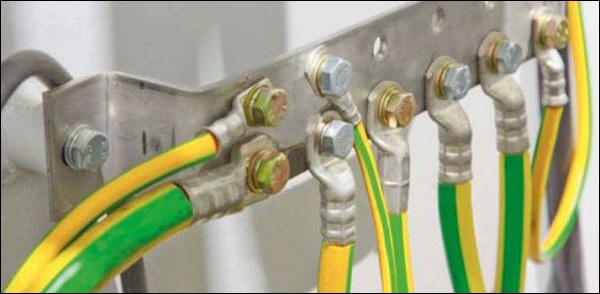
- Electrical Safety Tutorial
- Electrical Safety - Home
- Power System
- Indian Standards
- Low Voltage Overload Protection
- Short Circuit Protection
- Earth Fault Protection
- Earthing
- Types of the Supply System
- Cables
- Classification of Hazard-Prone Areas
- Safety Measures Related to Gas/Ducts/Fibre material
- Classification of Temperature
- Protection Against Weather Complexities
- Safe Electrical Equipment Design Characteristics
- Test Certifications
- Procedure to Mark Unprotected Equipment
- Maintenance of Unprotected Equipment
- Duties and Obligations
- Primary Ex-protection
- Secondary Ex-Protection
- Precautions Against Highly Flammable Contents
- Safety Measures During Handling Lighting Protection Equipment
- Bonding
- Transformer Safety
- Motor Handling Safety
- Generator Handling Safety
- Crane Handling Safety
- Safety Measures During Preventive Maintenance
- Types of Safety Equipment
- Implications of Human Behaviour
- Do's and Don'ts at a Glance
- Electrical Safety Useful Resources
- Electrical Safety - Quick Guide
- Electrical Safety - Useful Resources
- Electrical Safety - Discussion
Electrical Safety - Bonding
A fault current always seeks for the low resistance path and through that travels to the nearby systems thereby damaging them to the core. In this regard, all major members of metallic structure should be bonded and well connected as per the lightning protection system. This includes the continuous metal reinforcement and services of the concerned metallic structure.
Such bonding should be made at least at two places around the structure. They should be equally spaced and the gap between them should not exceed 15m. The structures contain metalwork frames. The metalwork frames should also be bonded to the lightning protection system.

All the conductors entering inside should be metal-cased. The metal casing should be electrically continuous within the structure. It is the critical responsibility of the safety officer to inspect the structure.
The point at which the conductor is marking its entry inside the structure should be earthed with respect to the supply side and should be bonded directly to the lightning protection system.
There is a different bonding strategy concerned to the conductors of the structure connected directly to the overhead lines. Here, a buried cable of metallic sheath of armour should be connected between the overhead line and the point of entry to the structure.
Surge protective devices like voltage-dependent resistors can also be connected. The earth terminal of this protective device should bond with the cable sheath or armouring. Bonding of such type will keep the overall structure safe from lightning.